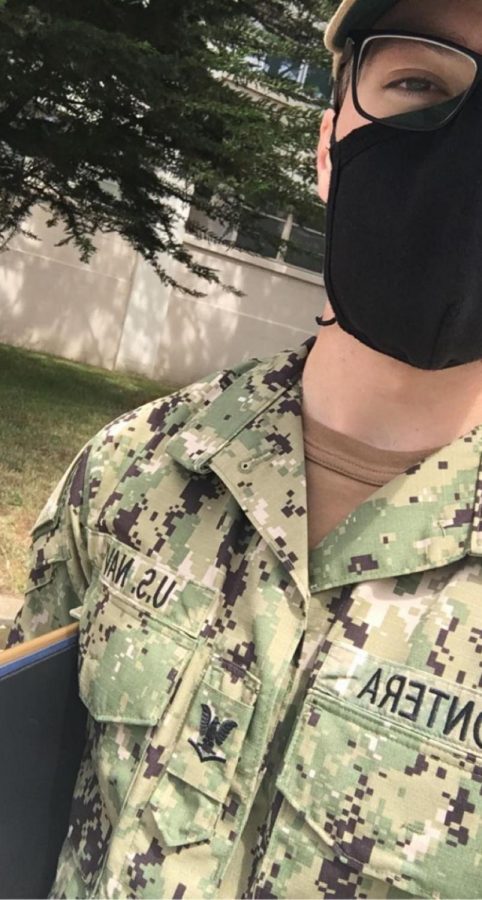Cryptology: Language learning in real world
Frontera in his cammies the day after being promoted to Petty Officer Third Class.
November 17, 2020
When you imagine cryptology, you likely imagine someone analyzing a bunch of super-complex codes in a made-up language, but in reality, it has more to do with translating real-life languages. North Harford alumnus Michael Frontera is a Cryptologic Technician Interpretive (CTI) in the Navy.
Frontera “got into the job because [he had] always been interested in foreign language study, and it [had] always been fairly easy for [him] to acquire a foreign language since [he] was a young kid.”
“[He had] always been fascinated by Middle Eastern languages and culture(s) since about the eighth grade when [he] met [his] friend, Seifuddin. He was (and is) a practicing Muslim and [Frontera] always wanted to be able to read the religious texts as he did.” With his determination, he “made it a personal goal to learn Arabic.”
As many social scientists have learned language learning does not come without difficulties. Frontera said his difficulties with the language came from, “learning the root system. Much like English has Latin roots for some words, Arabic has its own set of roots (usually three-letter roots) that can guide you to the meaning of a word. For instance, the root عام (a’alm) has to do with learning or knowledge. So, the word ثعليم (ta’aleem) would mean education. Then you run into the issue where many roots do not follow a set rule of meaning, so two words that have no relation at all may carry the same root.”
“[His] advice to language learners is to be patient, be confident, and never be afraid to make mistakes and laugh at yourself,” says Frontera. “Language learning takes time, lots of time.” He has become proficient in Arabic in just over a year, but according to Frontera, “ that does not mean [he is] done learning, practice is paramount to retention, so speak with people in your target language whenever you can,” he says that, “your skills in any language besides English will be one of your greatest treasures, as well as a highly marketable skill in almost any workplace.”
Frontera said he could not say much about his job because the “nature of [his] job is secret and requires [him] to maintain a top-secret clearance.” He adds it is nice to be unable to take his job “home with [him],” but finds it difficult to not “tell anyone about my day to day like a normal person. There is, unfortunately, a lot of secret-keeping that comes with the territory of my career.”





